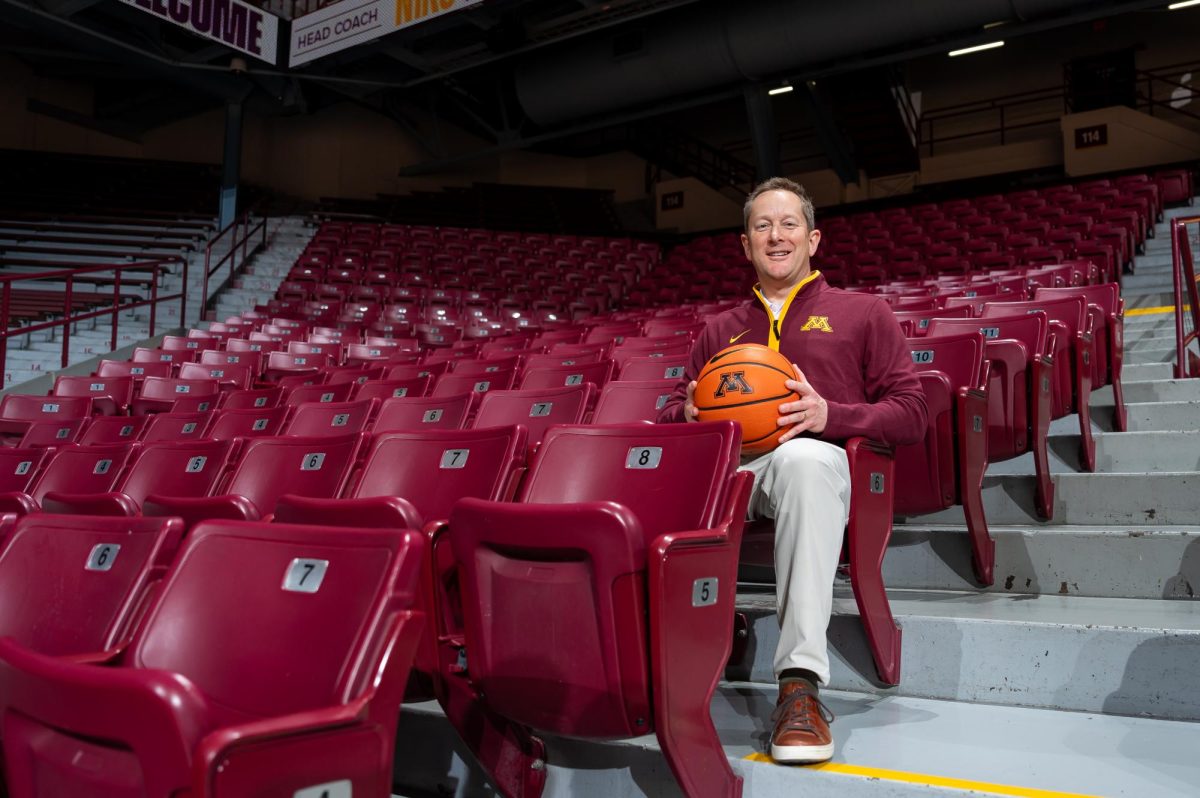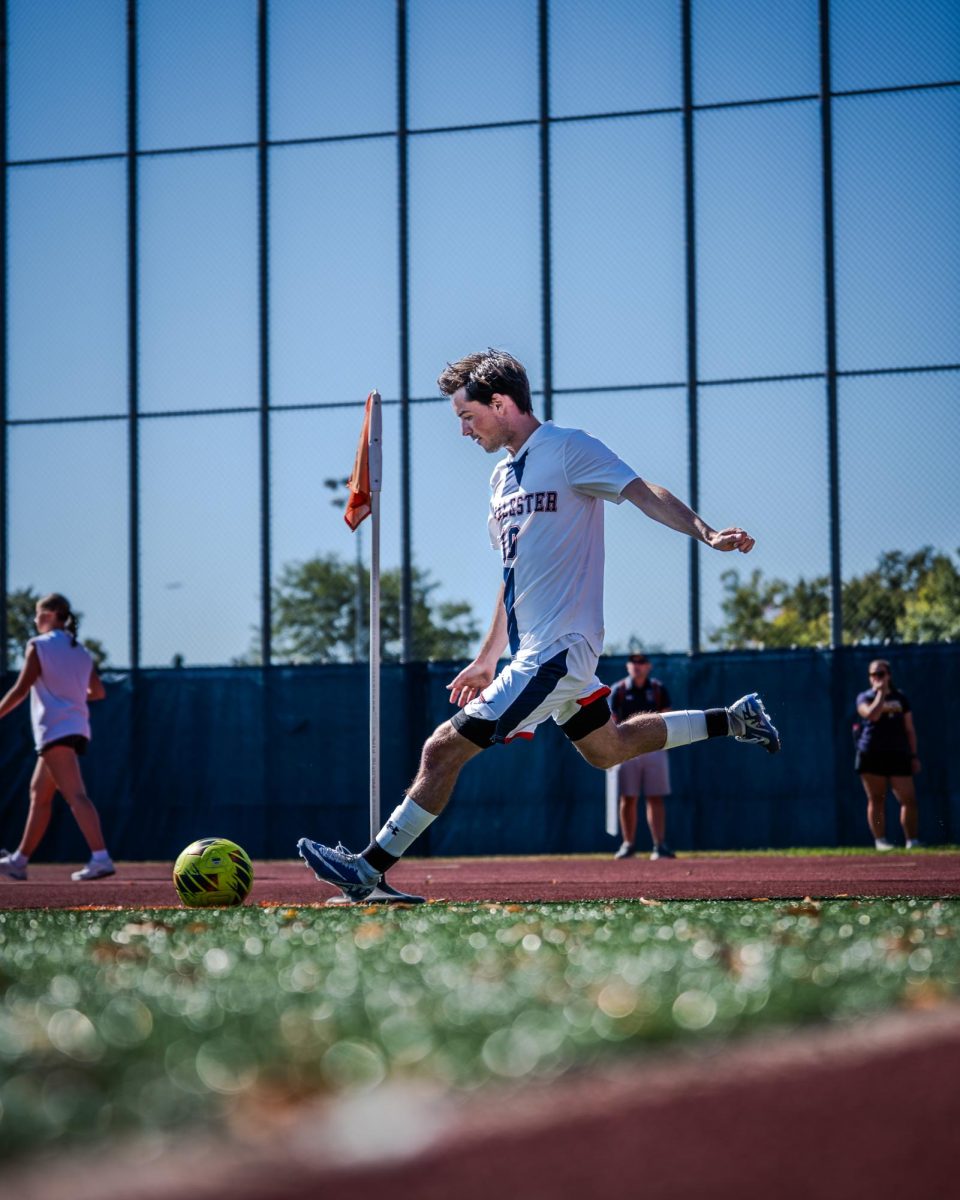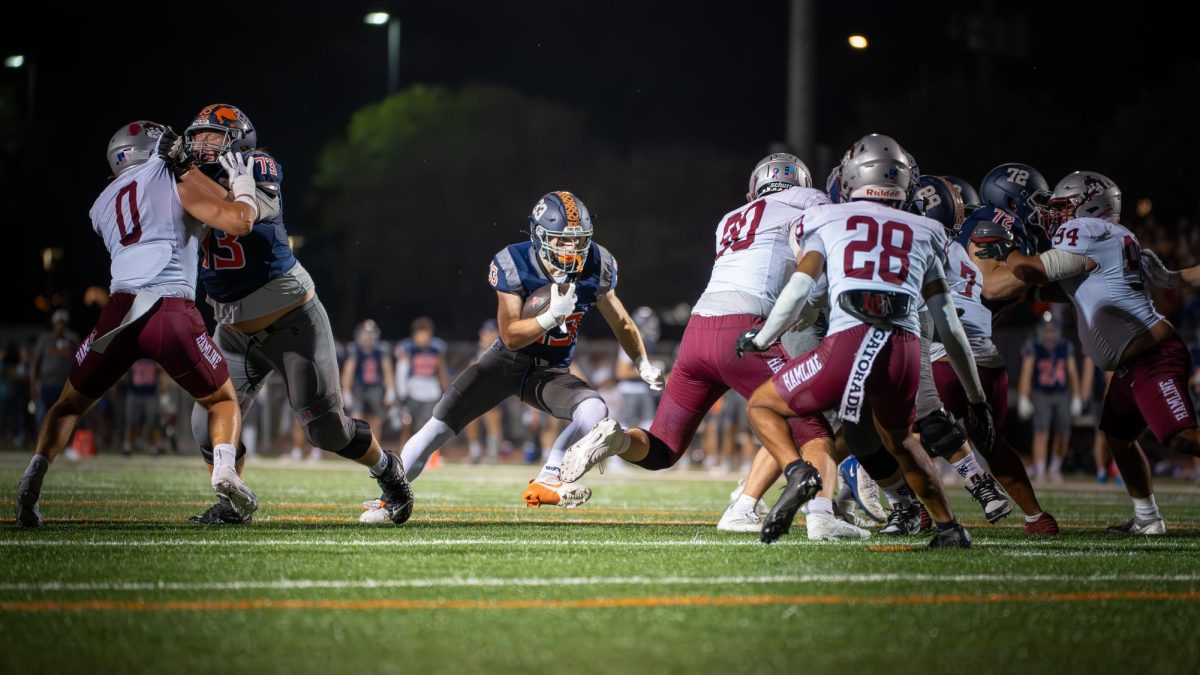When Curt Kietzer assumed the mantle of head coach for Macalester men’s basketball in 1997, he needed an assistant coach. The team was in the midst of one of its frequent bouts of despair. It did not take long for the right name to come across his desk: Niko Medved.
The two seasons that followed commenced a coaching career that would carry Medved around the country. And now, almost three decades after he got that first gig on the corner of Snelling and Grand Avenue, Medved ascended to the head coach position for the University of Minnesota Golden Gophers.
Medved’s tenure at Mac would see the dawn of one of the program’s most successful eras. When he arrived, however, that outcome was far from certain. Medved and Kietzer inherited a program in a state of serious disrepair. To say that the Scots crashed and burned in the 1996-97 season would be to imply that they ever got off the ground.
Then-head coach Andy Manning led an injured Mac squad to a 2-22 record overall and a 1-19 record in the Minnesota Intercollegiate Athletic Conference (MIAC). Seven months after his final fruitless season finished, Manning resigned. He took his exit as an opportunity to vent to The Mac Weekly about the difficulty of recruitment at a school that prioritizes academics like Mac.
“Some people want to uphold the tradition of losing at Macalester,” Manning said at the time. “They think that athletics and academics cannot coexist together. They think that if Mac begins winning, they’ll turn into a basketball factory, and I don’t think that’s the case.”
Manning’s parting words, though abrasive, accurately summarized the challenge that lay before Kietzer and Medved. Macalester’s recruitment struggles left the new duo with empty cupboards and a team at odds with the campus. One man’s trash would soon prove a treasure.
“We only had seven players on the roster [in the 1997-98 season,]” Kietzer said. “So, we couldn’t [even] scrimmage in a five-on-five situation.”
While a seven-man roster might seem bizarre for Mac now, ’90s Macalester basketball bears little resemblance to today’s program. Head Coach Abe Woldeslassie ’08 has five assistant coaches, including a full-time associate. From 1997-99, it was Kietzer and the part-time Medved. The fledgling assistant saw an opportunity for growth – and a program that desperately needed it.
“I think one of the best things about going to a place like Macalester is you really have to do everything,” Medved said. “So jumping in there, you have to have your hands directly involved in everything: recruiting, coaching, scheduling, network[ing], I mean, you name it. And so for a young coach … I think [it] was really invaluable for me.”
Kietzer says that although Medved earned a part-time salary, they both worked well beyond full-time hours. 60-80 hour weeks became their norm as the two molded the Scots into a winning basketball team.
To accomplish that goal, the coaches had to develop creative methods to win games. Unable to contend based on talent alone, the pair discovered an opportunity to exploit the style of the other MIAC teams.
“When I came into the league, and Niko joined me, [every team] had a system,” Kietzer said. “You knew exactly what you were gonna see from every team in the league, that they have been doing this for years, and it’s been successful for them to some degree in every case, and so why would you change?”
But Macalester’s system hadn’t been successful: it was time for Kietzer and Medved to pivot. They fit their system to their players, not the other way around. In those first couple of years, that meant they ran a pressing defense, even though Kietzer had never coached that defense before. When his roster changed, his teams stopped pressing altogether. They shifted from playing exclusively man defense to using more zone and playing inside-out when he recruited strong post players.
“No one could ever count on, from year to year, what they were going to see from Macalester,” Kietzer said. “It might be totally different than what they saw the year before or even the game before. We might be making adjustments even as the course of the season went on to exploit things that we [had] discovered.”
It didn’t take long for Kietzer and Medved to get proof of MIAC concept. On Feb. 10, 1999, Mac faced Augsburg University. The Auggies would finish that season at the top of the MIAC and win their first-round matchup in the NCAA D-III national playoffs. The engine behind their success? Devean George.
George would earn his second conference MVP and D-III All- American honors before he became the only-ever D-III player to be selected in the first round of the NBA draft.
George was not just an anomalous player in the MIAC. He was the outlier to end all outliers. He went on to play over 700 career NBA games and win three-straight championships with the Lakers. No one else in the MIAC has approached that level of success before or since. How was Macalester supposed to guard the 6-foot-8 MIAC marvel?
Medved had a plan: they would use a triangle-and-2, a junk defense where two players run man defense while three players zone up. The Scots put one of those man defenders on George, then brought help with a low man. That would leave one Auggie open. Kietzer picked their poorest shooter and profited from his gamble — “[the kid] went 1-for-11.”
The strategy worked. The Scots held George — who averaged 23.5 points per game as an Auggie to a measly 11 points. The Auggies won the battle, but along meager margins, 65-62. The Scots took the top team in the MIAC to the brink behind Medved’s scheme.
Medved left Macalester at the end of that season to join Head Coach Larry Davis at Furman University. He left the Scots after two seasons with 8-16 overall records. While an obvious improvement over the previous 2-22, a 16-32 all-time record at Mac understates the change that began during Medved’s tenure.
While Medved climbed the collegiate coaching ranks, Macalester climbed the MIAC ranks. At the turn of the millennium, Kietzer changed Mac’s recruitment fortune. Gone were the days of seven-man rosters. In their place was an 18-man group led by 6-foot-7 Ben Van Thorre ’04, the post bruiser who won MIAC Player of the Year and First-Team All-American honors in his final Scots season.
“We were able to have a lot of success in recruiting a handful of extremely talented basketball players from the state of Minnesota,” Kietzer said. “And because there wasn’t as much depth of talent around the league at the time … quality was much more important than quantity.”
In 2003-04, Mac basketball achieved its highest altitude since 1980-1, when they shared the MIAC title with St. Thomas University. An 18-9 record overall, 16-4 in the MIAC, and an appearance in the conference championship game, where they fell to nationally-ranked Gustavus Adolphus College, just six points shy of the team’s first-ever appearance in the NCAA D-III national playoffs.
Over four seasons between 2002 and 2005, Kietzer’s teams made the MIAC playoffs three times, most of Macalester’s five total visits.
However, as tends to happen in under-funded athletics programs, the good times couldn’t last. Right as Kietzer brought the Scots’ plane to cruising altitude, the wings fell off.
From his first season at Mac until the 2004-05 season, Kietzer’s record was 87-110 overall and 74-85 in-conference.
Then, in the 2005-06 season, Macalester won only seven games, its fewest with him at the helm to that point. They rebounded the next season with 11 wins, but that proved merely a ledge before they hit rock bottom. In those final four Kietzer seasons, the team went 24-76 overall and 17-62 in the MIAC. In his final Mac season, the Scots went winless, 0-25. Kietzer left Macalester on a 33- game losing streak.
“Two things changed during the course of my 12 years at Mac,” Kietzer said. “One was that around the league, the depth of talent dramatically improved during that time … the other … was that Division III schools started to really commit from a financial [and] staffing perspective to athletics.”
That change meant that while Kietzer had just one part-time assistant coach, most other teams in the MIAC hired full-time assistants whose main responsibility was to recruit new talent to their programs. The same recruitment bug that prevented Manning from taking flight now downed Kietzer.
While Macalester spiraled, Medved soared. He found his first head coach gig at Furman in 2013 before he moved to Drake University in 2017 and then Colorado State University the year after. In the Centennial State, he guided the Rams to a 143-85 overall record, helped them return to the NCAA Tournament for the first time in nine years and led them back to the Round of 32 for the first time in 12 years. However brief, he maintains that his time at Mac prepared him for his success today.
“If you look back at the resumes of so many great coaches, they’ve been at smaller levels,” Medved said. “You understand that the coaching is the coaching, whether you’re high school, Division III, Junior College, small Division I, you name it. And man, that time in the MIAC there, there’s great coaches. They all work and prepare the same way.”
Now, he’s arrived in the Big 10 with a momentous task before him: to return a middling squad to its apex. Macalester and Woldeslassie face a similar task. The doldrums that began at the end of Kietzer’s career as a Scot continued for almost a decade. In recent years, however, the winds have changed for Mac.
In 2018, Woldeslassie, who finished his playing years at Macalester under Kietzer, took over the program. Kietzer may account for 60 percent of Macalester’s MIAC playoff appearances, but his protégé has accounted for the other 40 percent. In 2022, Woldeslassie even returned Mac to the MIAC championship game. Though the Scots have a long journey ahead, they may one day exceed the heights that Kietzer once achieved.
“Curt is a terrific coach and person,” Medved said. “As I look back, you’re indebted to somebody like that. Trusting a young … inexperienced person like me with everything was so cool. He was a great person. He’s a great coach … that was big in my development as a coach and person, and I’m really thankful for my time there.”








